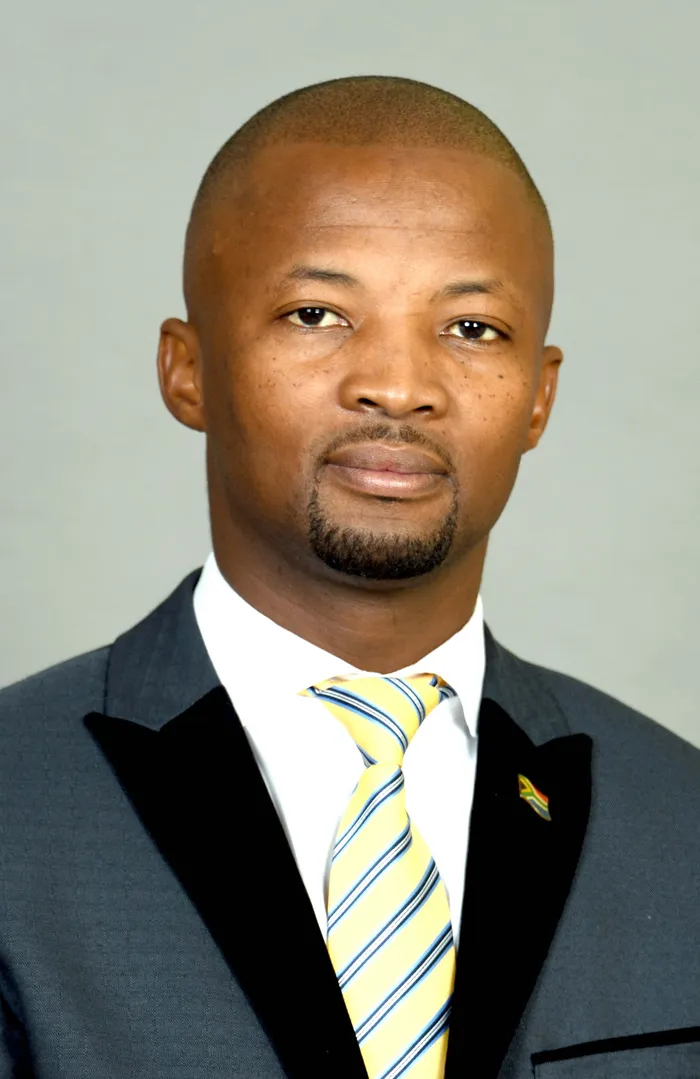UDM 'saves’ bigwig from kidnappers

UDM deputy leader Nqabayomzi Kwankwa
A top Western Cape law enforcement multi-disciplinary task team is piecing together the details of the kidnapping of UDM deputy leader Nqabayomzi Kwankwa, who was released after the payment of a ransom.
The 44-year-old was kidnapped on Tuesday afternoon while on his way to Cape Town International Airport en route to President Cyril Ramaphosa’s inauguration at the Union Buildings in Pretoria, party leader Bantu Holomisa said. His vehicle has since been recovered in Khayelitsha.
“A ransom of R10 000 was demanded for his safe return. The UDM paid the ransom, and Mr Kwankwa was safely released, albeit shaken and traumatised.
All his belongings, including his vehicle, were stolen. Mr Kwankwa is in contact with the police and his family has been informed of what has occurred. The UDM is saddened by this horrific event, but is very grateful for his safe return.
We wish Tshawe (Kwankwa’s clan name) well on his road to recovery from this dastardly incident,” said Holomisa.
Provincial police spokesperson Novela Potelwa said they were probing allegations of hijacking, kidnapping and robbery by armed suspects in Driftsands, Mfuleni.
“(The) Western Cape Anti-Kidnapping multi-disciplinary task team, comprising organised crime investigation and DPCI investigators as well as Crime Intelligence, is currently piecing together details.
“Allegedly after the ordeal the victim was dropped off in Lingelethu West, Khayelitsha where he made his way to a police station in the area to report the crime.
“His vehicle has since been recovered in the Khayelitsha area. The investigation continues and no arrests have been made yet,” said Potelwa.
The incident happened as three men from Soweto, Mlungisi Vincent Mbutu, Bongani Zulu and Zwelakhe Ngwenya, appeared in the Cape Town Magistrate’s Court on Tuesday morning facing charges of kidnapping and extortion.
The men were arrested by the Hawks on Friday and Saturday after a hostage was found tied up in the bedroom of a Woodstock house.
The court heard the trio had pending matters of similar nature against them in Gauteng and they might have been involved in kidnappings in other provinces.
National Prosecuting Authority (NPA) spokesperson Eric Ntabazalila said: “The case against Mbutu, 37, Zulu, 36 and Ngwenya, 25, has been postponed until June 25 for bail information. The State may add more charges against the accused as the investigation is continuing.”
Stellenbosch University’s criminologist Dr Guy Lamb said in the case of Kwankwa it was most likely that the incident had little to do with his political affiliation.
“It is a surprise and interesting that a political figure in Cape Town was a victim of this, it most likely had little to do with his political affiliation and more that he was viewed as having a certain income that his family or his associates would be willing to pay. In many circumstances people are willing to pay the ransom rather than report to the police who have developed specialised kidnapping response teams.
“SAPS quarterly crime statistics provide some information on this and the most recent data at our disposal, from October to December 2023, indicate most kidnappings for ransom happen in Gauteng with 77 cases reported there. In the same period in Western Cape (there were) 12 cases. What we are seeing in the province is organised criminal groups, small, large and some interconnected,” said Lamb.
He said most kidnappings in the province were in the form of extortion where business people were abducted and then ransom-related fees were demanded.
Dr Simon Howell of UCT’s Centre of Criminology said that with kidnapping and extortion crimes there was a category of organised syndicates, immature criminals and copycats who see the hype in the type of crime.
“Considering the low ransom rate this incident might be non-organised or just opportunistic criminals.
With what has been seen in other cases, high-income net value people, it is usually organised gangs or syndicates. These can be difficult cases to crack. They are very sensitive and require a lot of information and co-operation between police and other stakeholders.
“The success of these is also often not really known because they are kept on the down low due to the sensitivity. This makes it difficult to understand if intelligence has been failing or having success.
However, there is always a need for improvement, including in the use of technology,” said Howell.
National Community Policing Forum (CPF) chairperson Fransina Lukas wished Kwanka a speedy recovery from the traumatic experience.
“Crime and criminality affect all of us negatively and sometimes robs us of the most precious and irreplaceable things. The flare-up of kidnappings is a real cause for concern. We would like to call on SAPS to look into this type of crime and reactivate the specialised kidnapping unit that dealt with kidnappings successfully in the past. We call on communities to be vigilant, and report any suspicious behaviour to the police for immediate investigation,” said Lukas.
Anyone with information about the incident can anonymously contact Crime Stop at 0860010111 or use the MySAPS app.
Cape Times
Related Topics: